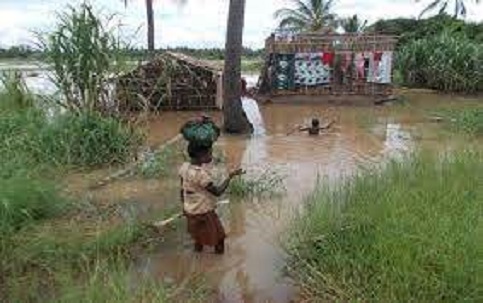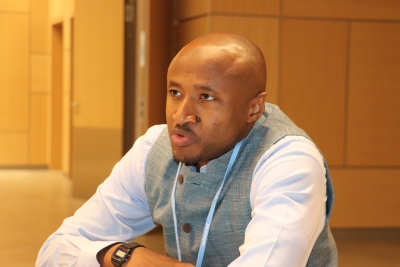
By Kelly Macnamara
From crop-wilting drought to the creeping devastation of rising seas, climate change is already bringing death, destruction and hefty costs to vulnerable nations, spurring growing calls for richer countries to help them cope in a warming world.
The contentious issue of “loss and damage” has been a major focus of an ongoing United Nations climate talks in Germany tasked with laying the groundwork for the COP27 summit later this year.
“The impacts of climate change are borderless,” out-going UN climate change chief Patricia Espinosa told delegates last week. “They continue to particularly affect the most vulnerable people, communities and countries disproportionately.”
While climate negotiators met in Germany, the Horn of Africa was gripped by a record drought, raising fears of famine for tens of millions of people.
“These kinds of impacts make the clear case for loss and damage funding,” Mohamed Adow, of the think tank Power Shift Africa, told AFP. “Those rich countries blocking progress on loss and damage will increasingly have the blood of these climate victims on their hands.”
Developing nations want a specific funding “facility” to help poorer nations least responsible for climate change to cope with its impacts.
But that call has been rejected by wealthy nations, particularly the United States, who have said funding can be channelled through a network of existing humanitarian, development and climate organisations.
As a compromise, the UN’s COP26 conference in Glasgow set up a formal dialogue, which is set to run until 2024. It has no target outcome, leading to fears that it could become just a “talking shop”.
“We wanted a facility, but we were given a process that has no clear focus or vision,” Michai Robertson, a representative for the Alliance of Small Island States (AOSIS), told AFP.
After several days of discussion on the topic wrapped up in Bonn, developing countries are now calling for the official inclusion of loss and damage on the agenda at COP27 summit in Egypt, set for November.
‘Human suffering’
Nearly 1.2 degrees Celsius of warming since the mid-nineteenth century has been enough to unleash a torrent of disasters across the planet.
A landmark report on the impacts by the Intergovernmental Panel on Climate Change (IPCC) this year — dubbed an “atlas of human suffering” — said effects will continue to escalate with every fraction of a degree of warming.
Science is now able to trace the fingerprints of climate change on a given extreme weather event. The crippling heatwave in India and Pakistan in March and April was made 30 times more likely by climate change, according to scientists at the World Weather Attribution.
Campaigners say the current system puts the economic burden on the shoulders of the most vulnerable. A single disaster can reverberate for generations, but Teresa Anderson of Action Aid said communities often face “multiple shocks over successive years”.
Growth ‘wiped away’
Vulnerable countries released a report last week, spearheaded by Ghana, that found rising temperatures and modified rainfall patterns have already reduced their wealth by 20 per cent over the past two decades.
The economic impact is particularly acute in Africa, according to the IPCC, which cited estimates that gross domestic product per capita was around 13 percent lower in 2010 than it would have been without the previous two decades of global warming.
“It’s heart-breaking to see the great development gains we’ve made over the past 50 years being wiped away by a climate crisis which we in Africa haven’t caused,” said Adow.
Increasing climate risks are compounded by a shortfall in separate funding from rich polluters to help nations prepare for future warming, with a promise of $100 billion a year from 2020 still not met.
Frustrations
Wealthy nations are concerned about any suggestion of legal liability that would put them on the hook for billions, if not trillions.
“We know that vulnerable countries and communities are confronting devastating impacts of climate change, as indeed, is happening in communities across the United States as well,” US representative Trigg Talley told delegates on Saturday.
While the US did not see a need for a new funding body, he said there were a range of measures to increase the amount of money available.
This could include boosting humanitarian responses, a new UN push for every country to have early warning systems, a German-backed plan to increase access to insurance, and expanding the remit of existing climate funds. But vulnerable nations are wary.
Robertson said AOSIS has made several attempts to change or expand existing funding, but those efforts were rebuffed. “It does get to a point of being quite frustrating,” he said.
As it stands, aid funding is often “a drop in the bucket” compared to losses, Robertson said, while strict criteria for climate funds meant some countries ended up paying more than market rates for loans to rebuild after a disaster.
Meanwhile, coastal communities facing the insidious threat of rising seas, can suffer losses that will never trigger an emergency humanitarian response. Other issues are ignored because they are considered “non-economic”, like the loss of heritage, said Robertson.
Marshall Island representative Kathy Jetnil-Kijiner told delegates last week that there was “no funding for addressing the loss of cultural sites now inundated by rising seas”.











